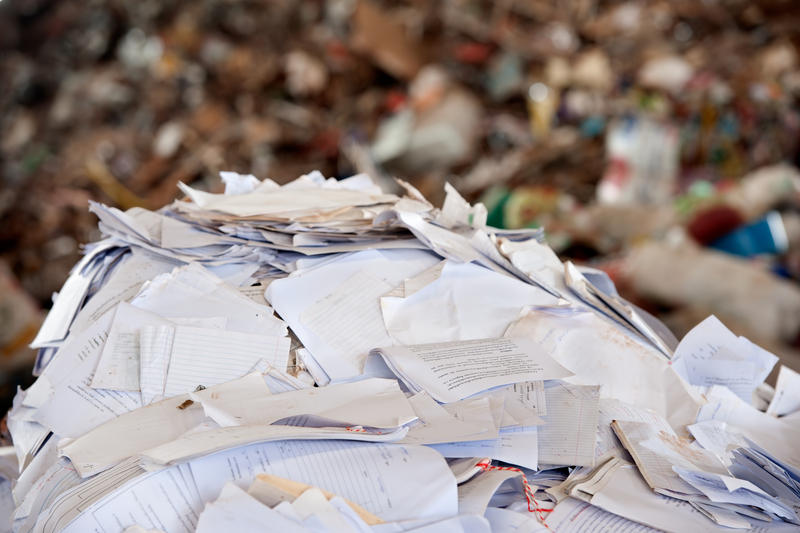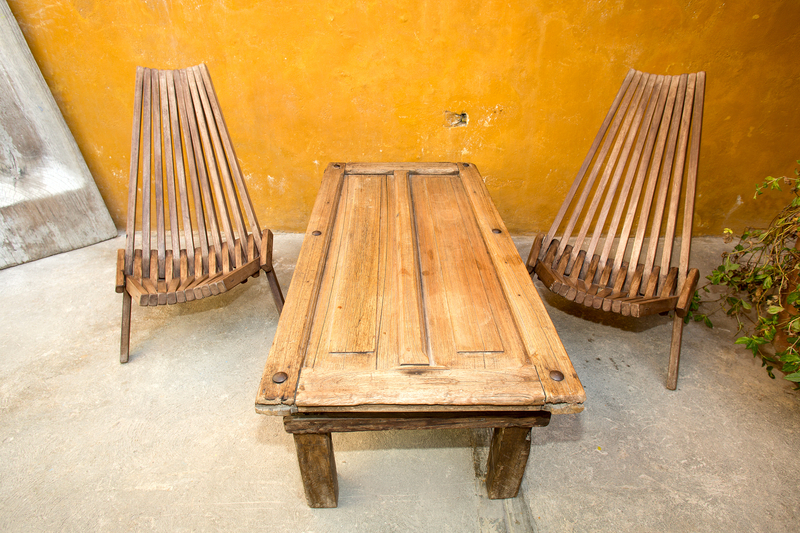Save Money When Removing Bulky Items from Your Property: The Ultimate Guide
When it's time to get rid of unwanted large items in your home, office, or property, the costs and hassle can quickly add up. Whether you're dealing with old furniture, appliances, mattresses, or construction debris, paying for removal services can be pricey. However, there are smart, cost-effective strategies to save money when removing bulky items from your property. In this comprehensive article, we'll explore budget-friendly removal methods, tips for efficient disposal, and insights to help you choose the right approach for your needs.
Why Removing Bulky Items Can Be Expensive
Bulky item removal isn't as simple as tossing out a bag of trash. Due to their size, weight, and specific disposal requirements, large items often require special handling. Many municipalities limit curbside collection, and professional junk hauling services can charge significant fees. Hidden costs like labor, transportation, dump fees, and environmental surcharges can inflate the total bill.
- Labor costs: Heavy lifting and hauling may require teams and special equipment.
- Transportation: Large items don't fit in regular vehicles, so van or truck rental might be necessary.
- Disposal fees: Local landfills charge based on volume or weight for certain materials.
- Eco-fees: Appliances and electronics often have additional recycling charges.
To save money on bulky waste disposal, understanding your options and planning ahead is key. Below, we share step-by-step strategies--whether you want to do it yourself, sell or donate, leverage municipal services, or work with professionals.

1. DIY Bulky Item Removal
Rent a Truck or Trailer
Taking charge of the removal process can save you hundreds compared to full-service junk haulers. If you have access to a truck, trailer, or van, you can transport items directly to a landfill, recycling centre, or charity donation point.
- *Pros:* Maximum savings, flexibility of timing, opportunity to recycle or donate.
- *Cons:* You'll need to do all the lifting and may need extra hands for safety.
*Tip:* Share the cost with neighbors or friends who also have large-item disposal needs. Renting a truck collectively spreads out expenses and even makes the task more enjoyable.
Break Down Items Whenever Possible
Before hauling, see if your bulky waste can be dismantled. For example:
- Sofas and wooden furniture can often be unscrewed or sawed in half.
- Bed frames, tables, or shelving often disassemble into flat pieces.
- Appliances may be deconstructed for recyclable materials (check local regulations).
Smaller, broken-down pieces fit easier into vehicles and may be accepted at recycling facilities or pickup points that don't allow oversize items.
2. Use Your Local Council's Bulky Waste Collection Services
Research Free or Low-Cost Pickup Programs
Many city and county governments offer bulky item collection services as part of regular waste management or for a nominal fee. These are often limited to a specific number of pickups or items per year.
- *Most accept:* Furniture, mattresses, appliances, carpeting, scrap metal.
- *Restrictions:* Some require advance booking, set size/weight limits, or only allow curbside placement.
*Tip:* Schedule your pickup well in advance, as these services can book out quickly, especially after holidays or moving season.
Utilize Transfer Stations and Drop-Off Days
If curbside removal isn't available, local recycling and transfer stations may accept bulky items for little or no cost. Check community bulletin boards or the municipal website for seasonal "clean-up days" when larger loads or special materials are accepted free of charge.
3. Sell or Donate Your Unwanted Large Items
Market Your Bulky Waste Online or Offline
One person's trash is another's treasure! Before disposing of heavy items, consider reselling or donating to keep items out of the landfill and even earn a little extra money:
- Online Marketplaces: List items on Facebook Marketplace, Craigslist, OfferUp, or local "Buy Nothing" groups.
- Freecycle: Give away items to people who can pick up at their convenience.
*Tip:* Clearly photograph and describe the item's condition to attract buyers. Offer curbside, garage, or apartment lobby pickup for minimal hassle.
Donate to Charities and Non-Profits
Charities and thrift organizations often accept gently used bulky items. Some even offer free pickup services, which means you save both time and money on removal!
- *Examples:* Salvation Army, Habitat for Humanity ReStores, local church or community groups.
- *Restrictions:* Most require items to be in usable, clean condition; check their lists before arranging pickup.
4. Compare Junk Removal Companies for the Best Price
Request Multiple Quotes
If your situation demands professional assistance--perhaps due to time constraints, heavy lifting, or hazardous items--never settle for the first quote!
- Contact at least three local haulers and ask about their rates for large-item removal by volume, item, weight, or truckload.
- Clarify what's included: Are there any extra charges for stairs, labor, or disposal fees?
- Negotiate or ask for price matching if you find a better offer elsewhere.
Book Off-Peak or Group Jobs
Junk removal rates can often be negotiated when demand is low. If possible, schedule during weekdays or outside of busy moving seasons.
- *Consider pooling jobs* with neighbors, friends, or family. Companies may offer group discounts when picking up from multiple addresses in the same area.
5. Remove Bulky Waste Sustainably and Legally
Recycle Where Possible
More than ever, eco-friendly disposal of large items helps the planet--sometimes saving you money in the process. Many towns have special recycling events for electronics, white goods, or mattresses.
- Appliances: Ask about rebate programs if you're replacing old refrigerators or washing machines with energy-efficient models.
- Metal Scrap: Metal recycling centers may pay by weight for stoves, bedframes, and other metal-heavy items.
- Electronics: Tech stores or manufacturers sometimes offer take-back programs for free or a reduced fee.
Be Aware of Fines & Illegal Dumping
Illegally dumping bulky waste on roadsides or in alleyways is not only damaging to the environment--it can also result in a hefty fine. Always confirm local disposal laws before leaving items curbside, and only use licensed and insured removal services.
Summary Table: Ways to Save Money on Bulky Item Removal
| Method | Potential Savings | Effort Level | Bonus Tips |
|---|---|---|---|
| DIY Hauling | High | High | Split rental/truck costs with others |
| Municipal Collection | Very High | Medium | Book well in advance |
| Sell/Donate | Medium to High (sometimes profit!) | Low to Medium | Take clear photos; list in multiple places |
| Professional Haulers | Varies (can save with quotes) | Low | Negotiate & book off-peak |
| Recycling/Scrap Yards | Medium | Medium | Ask about cash for scrap metal |
Frequently Asked Questions about Budget-Friendly Bulky Waste Removal
Can I put bulky items out with regular trash?
Usually, regular trash collection doesn't accept oversize or heavy items. Always check local guidelines--some cities have designated pickup days or request advance scheduling.
How much does junk removal typically cost?
Costs vary widely depending on location, item size, and access. Nationally, the average is $100-$600, but costs can be just $0-$50 with DIY or municipal programs.
Are there restrictions on types of items?
Yes. Most services exclude hazardous materials (paints, batteries), tires, or certain electronics. Always clarify what's accepted before arranging removal.
Do I need to be present during collection?
Depends. Curbside programs or donation pickups usually do not require your presence, but professional haulers may require access if items are inside your property.

Expert Tips to Minimize Large Item Disposal Costs
- Plan Ahead: Gather all unwanted items at once to minimize repeat trips or pickups.
- Prepare Items: Clean, disassemble, and bundle to reduce size and weight.
- Always Ask About Hidden Fees: Confirm if there are charges for stairs, mileage, or hazardous materials.
- Document Donations: Keep receipts for tax write-offs when donating to qualifying charities.
- Respect Local Regulations: Avoid fines by following neighborhood guidelines for curbside placement and collection timing.
Conclusion: Saving Money and Stress When Removing Bulky Waste
Removing bulky items doesn't have to break the bank. With the right planning, you can save money when removing large items from your property and feel good about environmentally responsible disposal. Remember to survey all possible options--DIY disposal, municipal programs, reselling/donating, eco-recycling, or hiring pros--and choose the method that fits your budget, timeline, and sustainability values.
Whenever possible, combine efforts with friends or neighbors, break down items for easier handling, and prioritize donation or recycling. By following these best practices, you're sure to achieve a clutter-free space while keeping more money in your wallet.
Have questions or tips to share about saving on bulky item removal? Leave a comment below to help others benefit from your experience!
